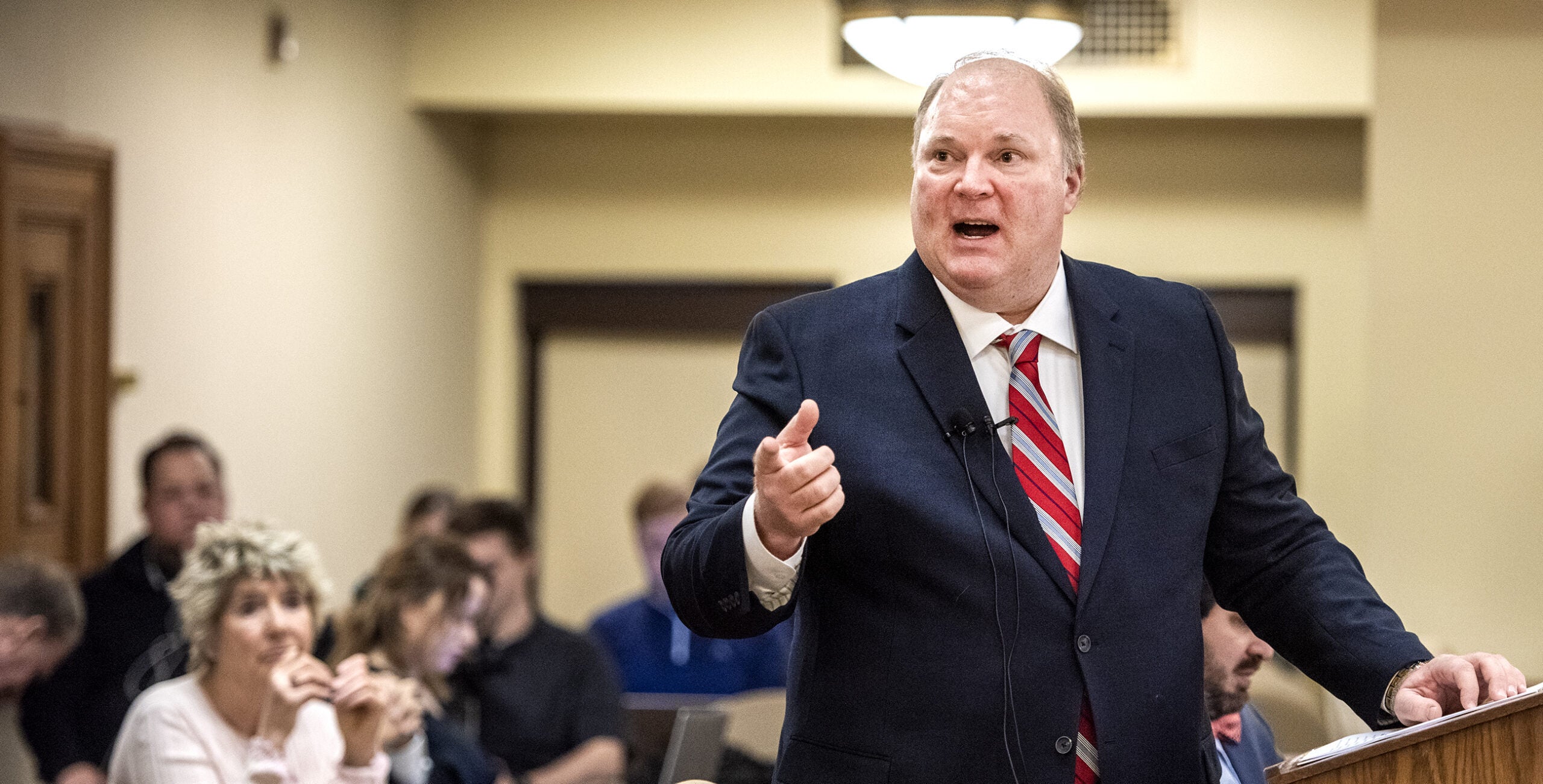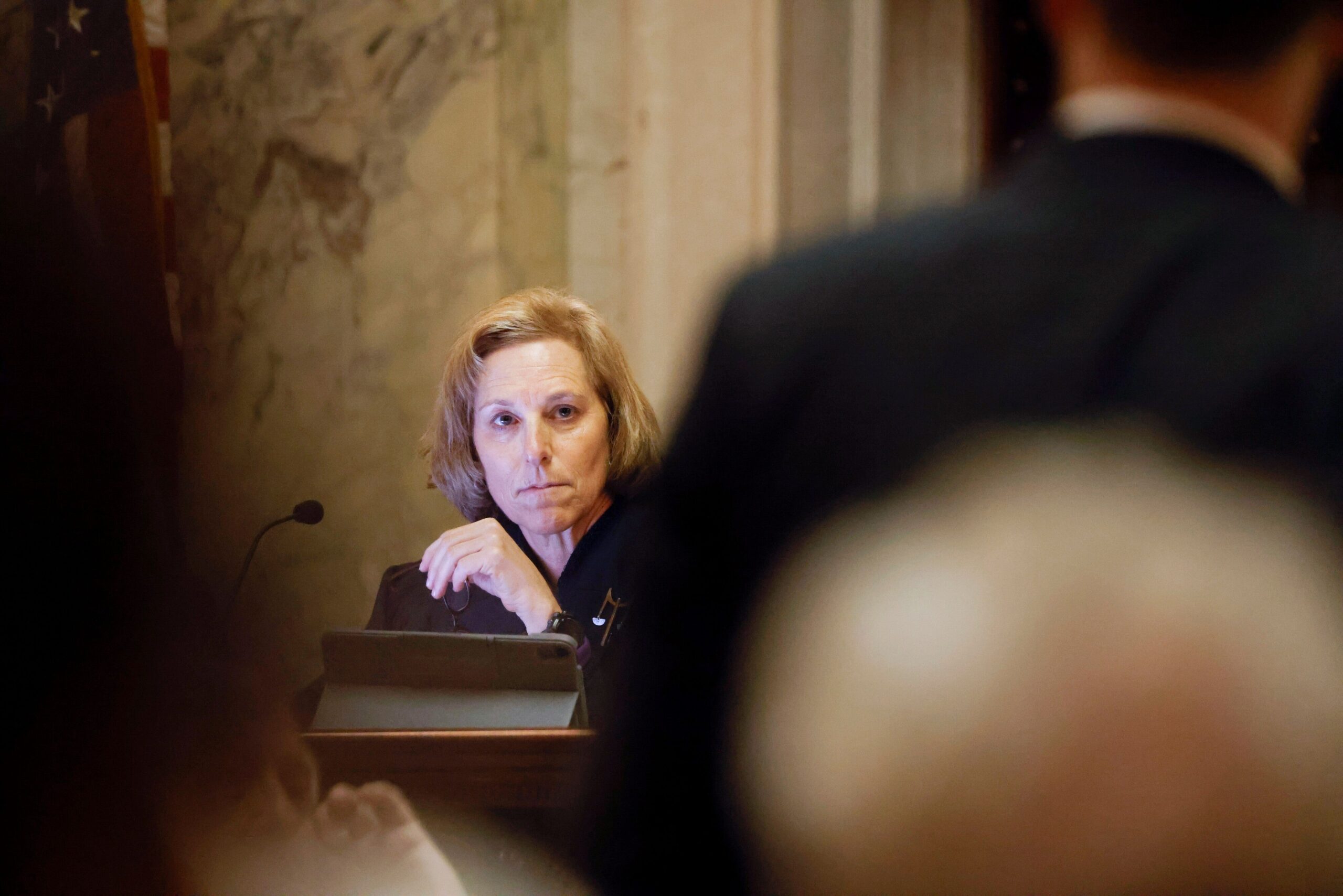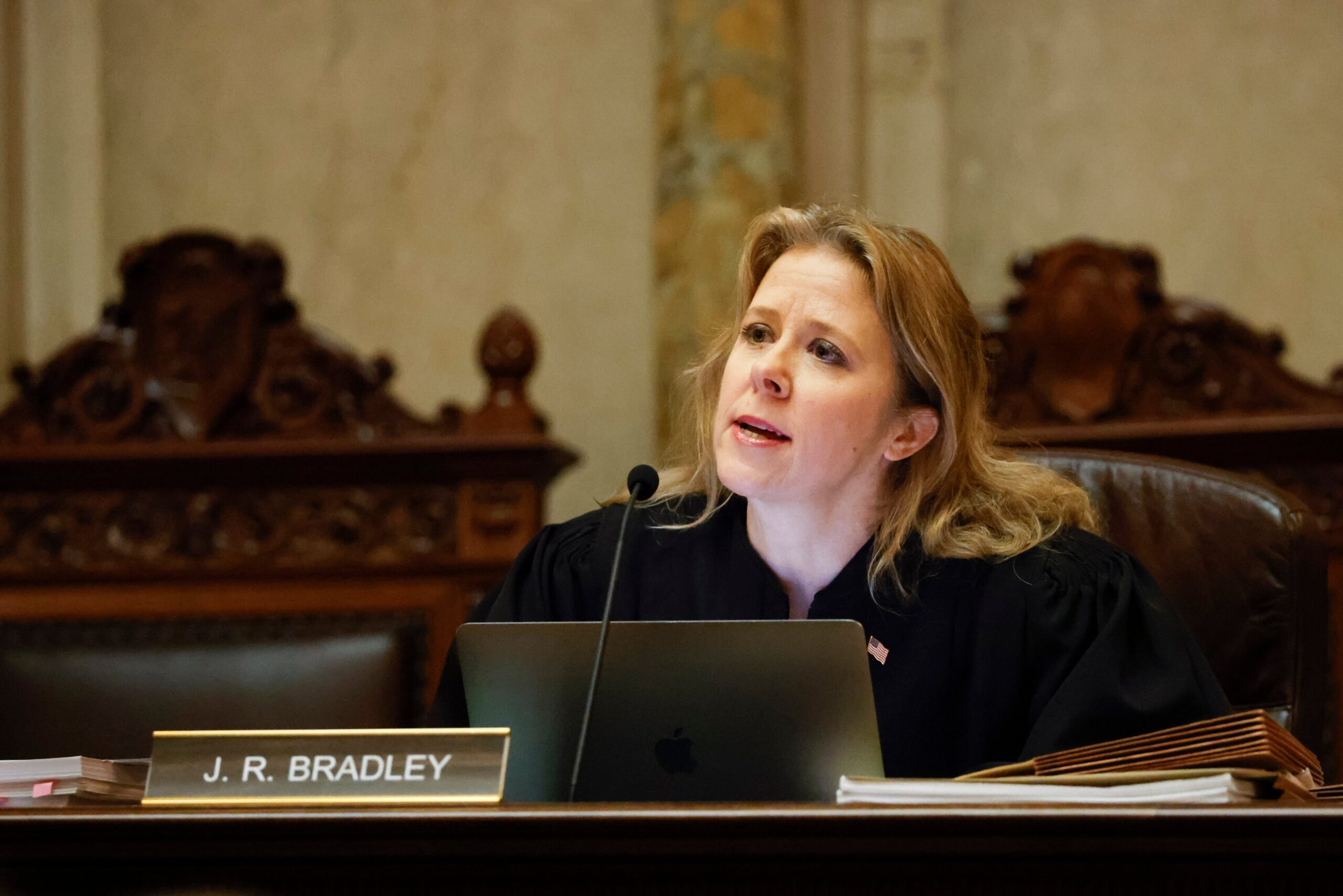Former Wisconsin Gov. Scott Walker said he’s worried the Wisconsin Supreme Court could soon take up a challenge to his signature legislation Act 10, as the court now has a liberal majority for the first time in 15 years.
Speaking Tuesday at a Milwaukee Press Club event, the Republican said he believes the court shouldn’t try to overturn legislation they may not agree with.
“If the court were to throw that (Act 10) out, that sets a horrible precedent,” Walker said.
News with a little more humanity
WPR’s “Wisconsin Today” newsletter keeps you connected to the state you love without feeling overwhelmed. No paywall. No agenda. No corporate filter.
Act 10, which effectively eliminated long-held bargaining rights for most state and local government employees, was signed into law by Walker in 2011. The legislation was controversial, as it essentially redefined organized labor in Wisconsin.
“You elect the Legislature, you elect the governor to pass laws, to sign them and enact them,” Walker said. “You (elect) the courts to see whether or not (laws) uphold to the Constitution and to the rule of law.”
Walker’s comments come days after Justice Janet Protasiewicz was sworn in, swinging the court to a liberal majority for the first time since 2008.
Last week, Chief Justice Annette Ziegler, a conservative, released a statement accusing the four liberal members of the court of going “rogue” and meeting in “a secret, unscheduled, illegitimate closed meeting,” in an attempt to cut her authority. Ziegler has also been critical of the liberal justices’ recent firing of Randy Koschnick as the state court system director.
Walker said he believes that move was unconstitutional.
“Well, I just think the bottom line is the Constitution is clear, the administration of the court is left up to the Chief Justice,” Walker said. “There’s no interpretation, there’s no other way around it. This is just a raw political move.”
Last week, Justice Rebecca Dallet released a statement that said the moves the majority is making advance a number of transparency and accountability measures.
“First, we have made a series of rules and operating procedures changes to make Court decision-making more inclusive, timely, and responsive,” Dallet said. “Second, we are committed to making all orders more readily accessible on our website. Third, we have voted to re-open our administrative conferences. And fourth, we will be announcing the creation of a bipartisan task force to study the issue of recusal and to present us with recommendations.”
In response, current Gov. Tony Evers said he wasn’t in a position to comment on the back and forth between the justices.
“What I do believe is I think at some point in time, this will all be over, and they will be doing their work just like they always have,” he said.
Walker’s comments come as some Republicans have questioned how far the new liberal majority on the court will go in reshaping Wisconsin policy. While Protasiewicz, a former Milwaukee County Circuit Court judge, has not stated how she will decide in various cases, she has made her personal beliefs about the issues of abortion and gerrymandering clear. She has said she believes that women have the right to make their own reproductive choices, and called Wisconsin’s existing maps “rigged.”
The court could also take up voting access issues, including weighing in on the legality of voter drop boxes, in advance of the 2024 presidential race. Wisconsin will once again be a coveted swing state, and recent presidential elections have been decided by less than a percentage point.
Liberals will hold a 4-3 majority with the next Supreme Court election scheduled for 2025.
Walker served as Wisconsin’s governor from 2011 to 2019. During that time, he appointed two conservative Supreme Court Justices. He has served as the president of Young America’s Foundation — a group aimed at enlisting young conservative’s — after he was defeated by Evers in 2018.
Wisconsin Public Radio, © Copyright 2025, Board of Regents of the University of Wisconsin System and Wisconsin Educational Communications Board.







